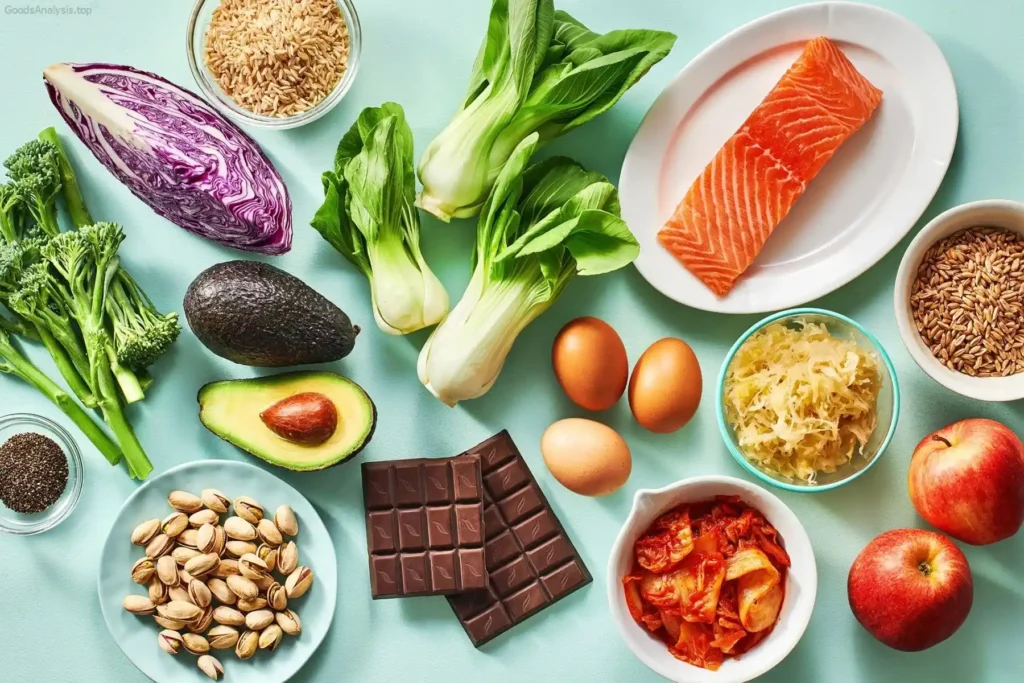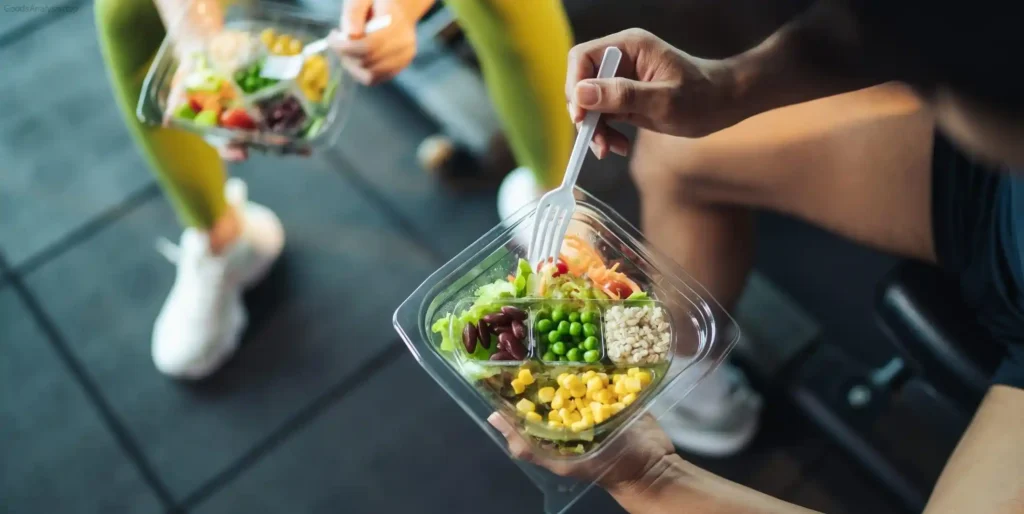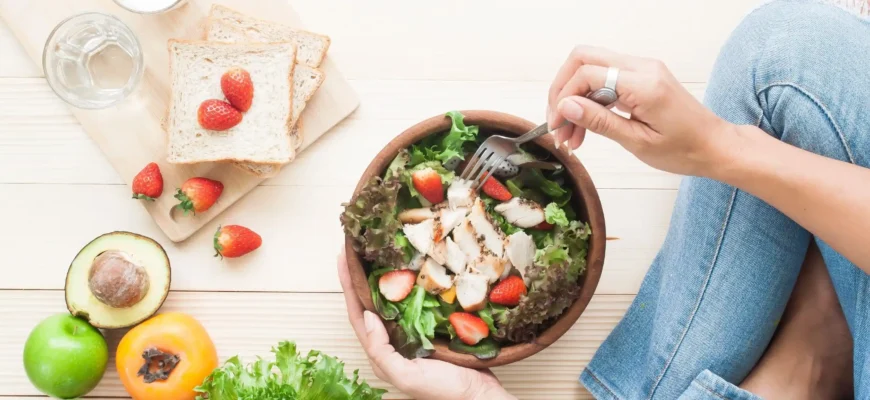When we think of “healthy eating,” we often imagine a lifetime of meal prepping, calorie counting, and saying “no” to everything delicious. But let’s face it – that’s just not sustainable for most of us. And frankly, who has time for that kind of precision? Between work, family, social commitments, and the occasional craving for something that isn’t a kale salad, it can seem impossible to maintain a healthy diet consistently.
But here’s the thing: eating well doesn’t have to be complicated. You don’t need to transform into a full-time nutritionist or drop all your favorite foods to enjoy a balanced lifestyle. With a few simple changes and strategies, you can make healthy eating much easier, without the stress. And yes, I promise you won’t miss out on flavor!
Let’s dive into the practical steps, based on science and years of experience, to simplify the journey to healthier eating.
1. Prioritize Whole Foods Over Processed Foods
You don’t need to be perfect, but moving from processed to whole foods is one of the easiest and most beneficial changes you can make. Whole foods – fruits, vegetables, lean proteins, nuts, seeds, and whole grains – are packed with nutrients that support everything from your metabolism to your mental clarity.
Why it works: Studies consistently show that diets rich in whole foods are linked to better health outcomes. For instance, a 2021 study in the Journal of Nutrition revealed that higher consumption of fruits and vegetables is associated with reduced risk of chronic diseases like heart disease and diabetes.
The Problem: The convenience of processed foods is real. They’re cheap, fast, and easy. But they come with hidden sugars, unhealthy fats, and excessive sodium, which are all culprits in the rise of obesity, high blood pressure, and other chronic conditions. So how do we fix that?
Solution: Start small. Replace one processed snack or meal with a whole-food alternative each week. Don’t think you need to overhaul your pantry overnight. Gradual changes are key to long-term success.
2. Meal Planning Doesn’t Have to Be Hard
One of the biggest barriers to healthy eating is the lack of time to plan meals. But planning doesn’t have to mean a military operation. You don’t need to spend hours chopping vegetables or making Pinterest-worthy dishes.
Why it works: A 2019 study published in the Journal of the Academy of Nutrition and Dietetics found that people who plan their meals are more likely to eat nutritious foods and have healthier weight outcomes.
The Problem: The idea of meal planning often feels like an overwhelming task, especially after a busy workday or a family event. It’s easy to skip this step and end up ordering takeout.
Solution: Try “batch cooking” – cook larger portions of simple meals that can last you for a few days. For example, make a big pot of chili, soup, or stir-fry that you can eat for lunch or dinner over several days. Another easy method? Assemble a handful of easy-to-prepare meals that require no more than 20 minutes of prep time.
3. Build a Healthy Plate Without the Stress
You don’t need to obsess over exact measurements or macros. Just build a balanced plate and be mindful of your portion sizes. This simple rule works for nearly everyone, whether you’re looking to lose weight, gain muscle, or simply maintain your health.

Why it works: The Harvard T.H. Chan School of Public Health suggests that the “Healthy Plate” method is an easy way to guide your food choices. Fill half of your plate with vegetables, a quarter with whole grains (like quinoa or brown rice), and the other quarter with lean protein (chicken, fish, tofu, or legumes).
The Problem: Often, we overcomplicate things, trying to follow every trend, diet, or superfood. But there’s no need to go down that rabbit hole.
Solution: Keep it simple. Focus on variety and color. Each meal is a chance to experiment with different vegetables, grains, and proteins – and your body will thank you for the diversity of nutrients.
4. Listen to Your Body’s Hunger Signals
Sometimes the simplest advice is the most powerful: eat when you’re hungry, stop when you’re full. Intuitive eating, or eating in response to your body’s natural hunger and fullness cues, is backed by decades of research and can be a game-changer in reducing overeating and fostering a healthier relationship with food.
Why it works: A study published in Eating Behaviors in 2020 found that intuitive eating practices were linked to lower rates of binge eating, lower body mass index (BMI), and healthier overall eating patterns.
The Problem: We live in a world where meals are often dictated by the clock or external cues (like a tempting dessert at a party). This detachment from our body’s true signals can lead to overeating.
Solution: Slow down during meals. Try putting your fork down between bites, paying attention to how full you feel, and not eating just because it’s time. If you’re not hungry, don’t eat. Simple, right?
5. Keep Healthy Snacks on Hand
It’s easy to get tempted by chips or candy when you’re hungry between meals. But when you have healthy options at your fingertips, it makes sticking to your eating plan much easier.
Why it works: Research in the American Journal of Clinical Nutrition suggests that having healthy snacks readily available can help regulate blood sugar levels, prevent overeating, and keep you energized.
The Problem: When you’re starving and there’s nothing to snack on but junk, it’s hard to make a healthy choice.
Solution: Stock your pantry and fridge with easy-to-grab snacks: almonds, Greek yogurt, veggies with hummus, fruit, hard-boiled eggs, or a handful of nuts. Not only will they curb your hunger, but they’ll give you a nutrient boost too.
6. Stay Hydrated
Water is the unsung hero of healthy eating. Often, we confuse thirst with hunger, leading us to eat when all our bodies need is hydration.

Why it works: A review in the American Journal of Public Health concluded that staying hydrated can reduce the risk of overeating and improve digestion. Plus, water helps with energy levels and cognitive function.
The Problem: Sometimes, it’s just too easy to forget about drinking water, especially with busy schedules. But dehydration can lead to fatigue, headaches, and yes, overeating.
Solution: Carry a water bottle with you, and aim to drink at least 8 cups (2 liters) of water a day. If plain water bores you, try infusing it with fruit or herbs to make it more exciting.
Final Thoughts: Healthy Eating Is a Journey, Not a Sprint
Making healthy eating easier isn’t about perfection. It’s about small, sustainable changes that become a part of your routine. Some days will be harder than others, and that’s perfectly fine. The key is consistency, not perfection.
Here’s the best advice I can give: Start with one or two changes, and over time, they’ll become habits. The goal isn’t to make food a source of stress – it’s to make it enjoyable and nourishing. And when you approach healthy eating with that mindset, it becomes much easier to stick to in the long run.
What Others Are Saying About Healthy Eating
- Martha, 55, USA
“I used to think healthy eating meant eating tasteless food and endless salads. But once I started planning my meals and focusing on whole foods, it felt like a real shift. I’m more energized, and I actually enjoy my meals now.” - Carlos, 42, Spain
“I’m a busy professional, so meal prep was always daunting. But I found that batch cooking on Sundays and keeping simple, healthy snacks in the fridge has really made a difference. No more quick fixes with fast food!” - Zara, 30, India
“For me, it’s all about balance. I eat what I enjoy but make sure I’m getting enough fruits and veggies in my day. It’s important to listen to your body and not force yourself into extreme diets.” - Liam, 64, Australia
“I’ve always been active, but the nutrition part was the missing piece. Drinking more water and reducing processed foods has helped me feel less sluggish, even in my sixties!” - Jing, 29, China
“I used to rely heavily on delivery food, but now I cook more often. Simple dishes with lots of vegetables have not only improved my health, but also saved me money!”
By embracing these easy and evidence-backed strategies, you’ll find that eating well becomes second nature. So go ahead, give it a try. Your body will thank you for it!









